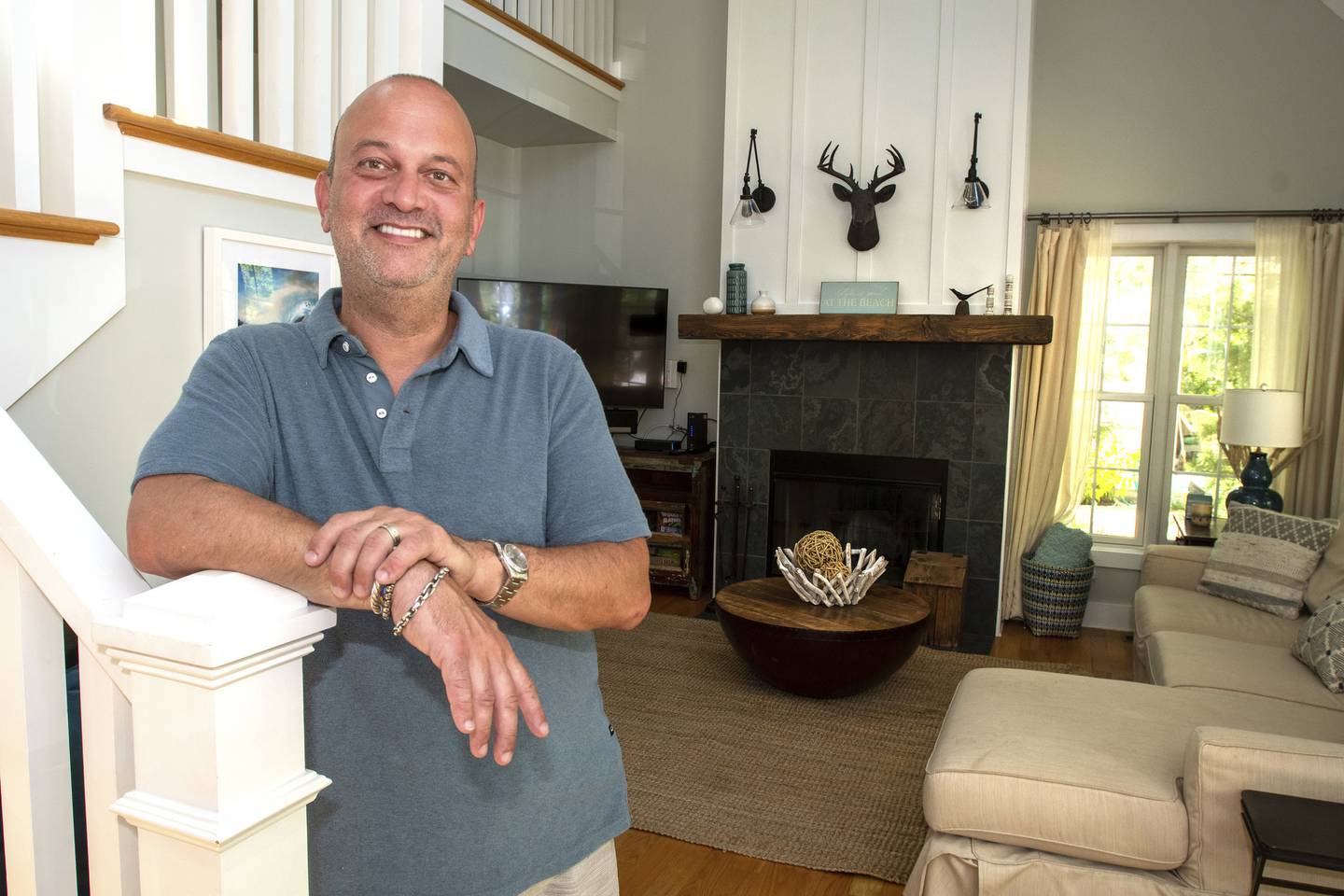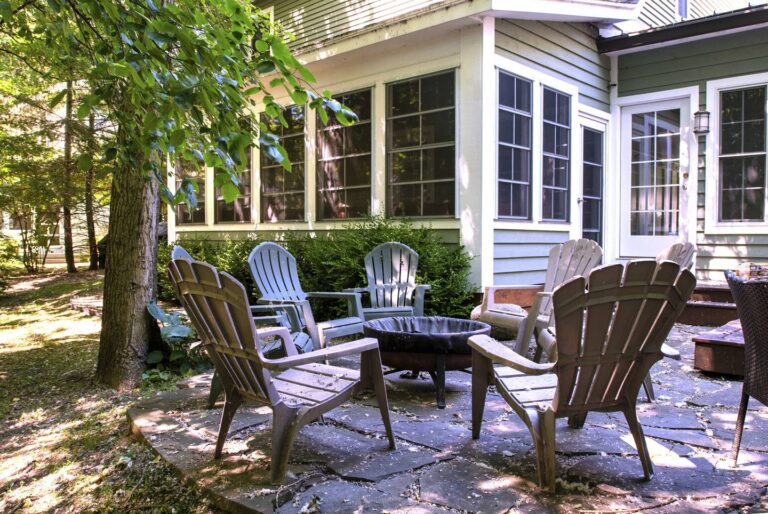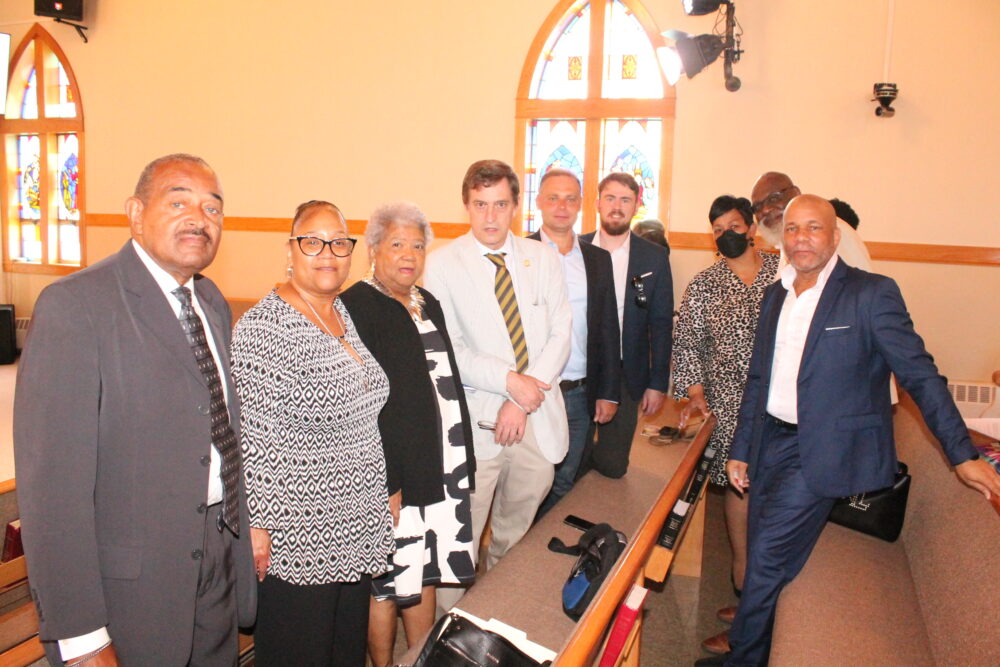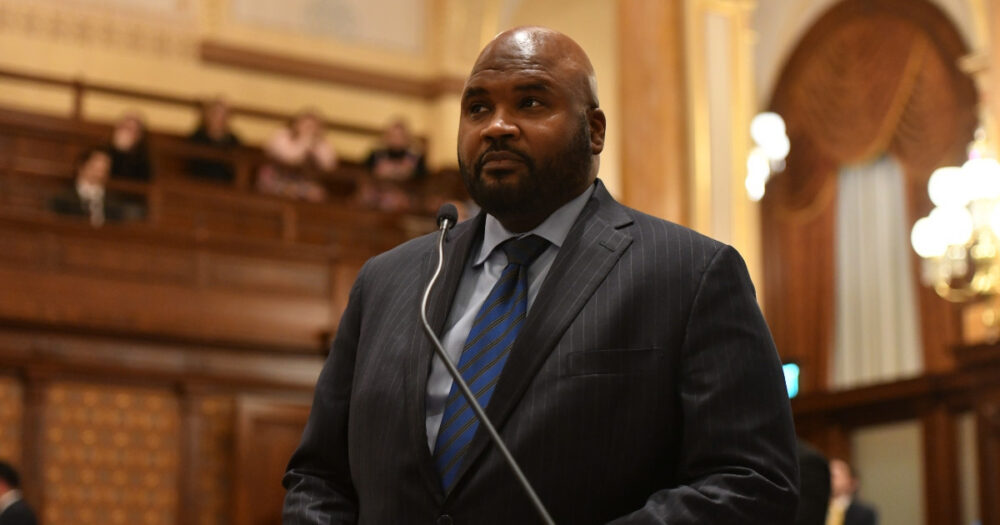In a stroke of lucky timing, North Shore resident Pam Levy and her family bought a vacation house in Union Pier, Michigan, in 2019.
The last two years, they’ve barely been able to use it.
Advertisement
The four-bedroom, three-bath house near — but not on — Lake Michigan has been booked solid, even during the typically quiet winter.
Annual rental income is grossing nearly 10% of the purchase price of the house and more than offsets the 25% commission charged by the rental agency that markets the property and the now-required deep cleaning between renters.
Advertisement
“I don’t have to do anything,” said Levy, 53. Nothing, that is, except try to find a rare open week when she can scoot over and sit in her own screened porch.
The pandemic has altered tourism trends, with many travelers opting to rent vacation homes — especially large homes with lots of amenities. Demand is up, and so are rental rates, which changes the economics of owning a vacation home. In vacation home-focused markets like Wisconsin, Galena and St. Joseph, Michigan, houses are selling for an average of 11 to 24% more than they did a year ago. But even when extra costs for cleaning, insurance and amenities are factored in, rental agents say many getaway houses end up paying for themselves over time.
Bigger houses rent faster, and for more, because they can accommodate those who have created “pandemic pods” of people whose COVID-19 status and immunity they trust, said Steve Stadel, who runs an eponymous accounting firm and insurance agency in Scales Mound, IL, in the Galena territory. Several couples or two or three families might treat a large house with amenities like a pool and theater room as their own mini-resort. And, though they venture into downtown Galena, renowned for its preserved Victorian ambiance, vacationers crave a bubble of protection around their lodgings, he said.
That explains why many vacation homes built in western Illinois are now being remodeled and expanded, Stadel said.
Expanded houses must be insured accordingly, Stadel said, and it costs more to heat and cool the extra cubic footage. Popular amenities like hot tubs and pools invoke risk that must be covered by heightened homeowners’ insurance. “It’s relative to the value of the house, but that’s still dollars out of your pocket,” said Stadel.
Advertisement
Not all the costs are borne by homeowners. Some rental agreements require guests to pay a damage waiver for each reservation so that the property owners are insulated from damage.
The post-covid momentum for vacation home rentals is likely to continue as renters adopt favorite destinations and explore them year-round, said Jason Milovich, who runs Bluefish Vacation Rentals in Union Pier, Michigan.

Even as travel restrictions have lifted, some people who only went as far as the southwestern Michigan coast now don’t want to go any further. “They’re discovering the wineries and distilleries in the fall and it’s fun to sled the Warren Dunes,” Milovich said. “And because people are coming year round, a lot of the restaurants and shops are staying open year-round, too. Small businesses that live and die by four months a year now get another four months.”
Advertisement
Last November, Jason Smolarek expanded his Florida rental management business to southeastern Wisconsin, in partnership with his mother, a longtime area resident.
EliteLakeRentals, the duo’s rental management firm, handles five properties and confirms to renters that the houses are properly licensed — a reassurance that savvy renters request, given that annoyed neighbors can blow the whistle on regulation-thumbing property owners. Although even if a visitor inadvertently rents a property that is not licensed, Smolarek said any fines would apply to the owner, not the renters. Of the 17,000 known absentee owners in Wisconsin’s Walworth County, about 500 are fully licensed as rentals, he said.
Advertisement
Home owners worried, at first, that higher gas prices, inflation and a partial return to traditional offices might undermine rental prices and demand, Smolarek said, but the primary change is that “the booking window has shortened,” Smolarek said. Renters are often booking trips less than four weeks out, he said.
Local rental professionals agree that the unexpected shocks of inflation and high gas prices mean that some renters are deciding at the last minute whether or not to make or keep their reservation. A resurgence of COVID-19 is also fueling churn in cancelations and last-minute requests.
The more flexibility that guests have in their own arrangements, the greater their chances of snagging an attractive rental at the last minute. It’s smart, said local agents, to stay in close touch with rental agents in the area where you want to visit, especially if you can give them a range of arrival dates, length of stay, and type of property you would like.
Deeper cleaning between guests takes longer, and that is rippling through the reservation system. Milovich is turning some properties over on Thursdays, affording those with flexible schedules to arrive late on Thursday and be settled in for a long weekend, instead of arriving on Friday night or Saturday morning. “You can explore on Friday when most people are leaving,” he said, “And have more options for avoiding crowds.”
Advertisement
Join our Chicago Dream Homes Facebook group for more luxury listings and real estate news.







